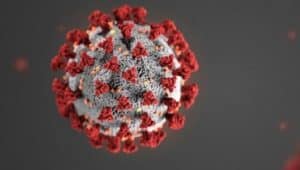
NICE advises GPs to stop prescribing opioids for chronic pain
pharmafile | August 5, 2020 | News story | Business Services, Research and Development | COVID-19, coronavirus
The National Institutes of Health and Care Excellence has released its first guideline on the treatment of chronic pain and has said GPs should not prescribe opioids for these conditions.
The draft guidance reveals that the treatment of chronic pain by commonly prescribed medicines including opioids and gabapenitnoids has limited effectiveness, but there was significant evidence that they could be harmful and cause addition.
The guidance says that GPs should not offer any of the following: opioids, non-steroidal anti-inflammatory drugs, benzodiazepines, anti-epileptic drugs including gabapentinoids, paracetamol, ketamine, corticosteroids and antipsychotics.
The guidance also states: “The lack of evidence for effectiveness of opioids, along with evidence of long-term harm, persuaded the committee to recommend against opioid use for people with chronic primary pain. Although there were limitations, evidence from non-randomized studies on the long-term use, more than six months, of opioids for chronic pain suggested an increased risk of dependence.”
This update to guidelines follows Public Health England’s research in 2019 into prescription drug addictions which revealed that 1 in 4 adults received prescriptions for antidepressants, opioids, gabapentinoids, benzodiazepines or z-drugs in the previous year. Data from the drug addiction firm UKAT also showed that admissions across seven rehab facilities for prescription drug addiction had risen by 40% in the last 18 months.
Eytan Alexander, Managing Director of UKAT, said: “Prescription drug addiction is as real as a Heroin addiction, but in this case, the addict gets their drugs from their GP rather than a dealer, to ‘treat’ their pain.
“We’re pleased to hear that today; the advice is that this should no longer be an option. GP’s need to be supported and resourced well enough so that they can spend a longer amount of time with their patients in order to provide a more holistic, safer treatment plan for chronic pain. One that doesn’t lead to addiction.”
Conor Kavanagh
Related Content

COVID-19 vaccine eligibility creates challenges for UK pharmacies
Pharmacists across England have reported widespread confusion among patients attempting to book COVID-19 vaccination appointments …

Mental health medicine use in England reaches record high, NHSBSA report reveals
According to new data published by the NHS Business Services Authority (NHSBSA), mental health prescriptions …

FDA approves Moderna’s Spikevax for children at increased risk of COVID-19
Moderna has been granted US Food and Drug Administration (FDA) approval for its COVID-19 vaccine, …






